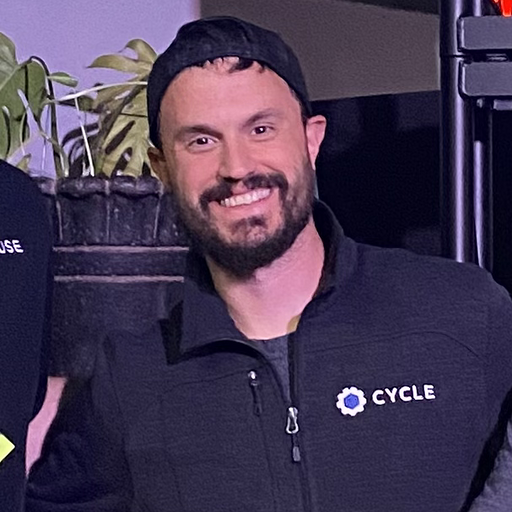Data lock-in and freedom are a worldwide problem. As usual, the EU is the first to regulate it. The passing of the Data Act made clear that in Europe, companies are guaranteed:
"fairness in the digital environment by clarifying who can create value from data and under which conditions. It will also stimulate a competitive and innovative data market by unlocking industrial data, and by providing legal clarity as regards the use of data."
So why is this two-year-old legislation suddenly all over the web? Because while the Act was passed in early 2024, September 2025 is when it actually took effect.
From now on, providers must:
- Let customers terminate contracts with two months' notice.
- Port data and digital assets within 30 days.
- Ban switching charges starting January 2027.
- Publish transparent documentation on formats, APIs, and switching.
Hyperscalers will comply, but don't expect them to make leaving painless. For everyone else, the law is a wake-up call that comes with real cost and urgency.
The Two-Headed War
With the Data Act now in force, providers and platforms aren't facing a single challenge; they're fighting on two fronts.
- The War of Retention: Termination rights, switching bans, and faster data transfers mean customers can leave with unprecedented ease. The old frictions that kept them in place are disappearing, and vendors must now win loyalty on merit rather than inertia.
- The War of Portability: Because users control how and where their data moves, it's no longer enough to lock workloads into a proprietary stack. To stay competitive, platforms must become increasingly agnostic — able to run seamlessly on a customer's cloud of choice, on-prem hardware, or in hybrid models.
These two forces collide at the infrastructure layer. Retention depends on trust, and trust depends on freedom. Yet the very tools we've relied on to promise that freedom, Infrastructure as Code, orchestration frameworks, and cloud-native tooling, reveal deep cracks under the pressure of this new reality.
The Elephant: Infrastructure as Code
The first response we hear is always the same: “We'll just use Terraform, or OpenTofu, maybe some bash scripts. And Kubernetes for orchestration.”
For years, cloud vendors have held up Infrastructure-as-Code tools like Terraform and Kubernetes as the keys to portability. On the surface, they promise freedom. In reality, they fall short — and the Data Act makes those shortcomings impossible to ignore.
Terraform works brilliantly for repeatability inside one cloud. The moment you try to take those scripts elsewhere, the differences in services, APIs, and hidden dependencies turn “portability” into a partial rebuild. It automates deployments, yes — but it also automates lock-in.
Kubernetes, meanwhile, shifts complexity without eliminating it. You can run clusters in any cloud, but networking, storage, and security are still provider-specific. And running Kubernetes well isn't free — it demands big teams, big budgets, and constant vigilance. The “portability tax” often cancels out the flexibility it promises.
The Real Unlock: Compute-Layer Abstraction
Your data should move on your terms: where it lives, how it's accessed, and which providers you trust to run it. That level of control isn't possible with brittle scripts or heavyweight orchestration. It requires something deeper: compute-layer abstraction.
With compute-layer abstraction, you define workloads once and run them anywhere. Move between clouds or on-prem without rebuilding. Avoid lock-in, dodge cost creep, and keep sensitive data where sovereignty laws require. Portability stops being theoretical — it becomes operational.
Cycle.io: Abstraction Without the Overhead
This is where Cycle sets itself apart. We built the platform to deliver orchestration and portability without the baggage of Kubernetes or the brittle dependencies of cloud-specific tooling. With Cycle, you don't have to wrestle with control planes, sift through endless YAML files, or build out a team of Kubernetes experts just to keep things running. We stripped away that complexity so you can focus on your applications, not the machinery underneath.
Instead of treating each environment as its own snowflake, Cycle brings them together into a single, unified fabric. Public cloud, private cloud, bare metal, or some combination of all three — it doesn't matter. You define your workloads once, and Cycle makes sure they run consistently no matter where you put them.
The payoff is simple:
- Cost optimization by running in the most efficient environment.
- Agility to enter new markets or comply with new laws.
- Trust by showing customers you're empowering them, not trapping them.
Cycle makes portability simple. While others are automating the chains of provider lock-in or burying teams in Kubernetes complexity, Cycle gives you the freedom to say:
“This is our data. We choose where it runs — and we don't have to rebuild everything to make that choice real.”
Beyond Compliance: The Future of Portability
The EU Data Act may be the spark, but it's not the endgame. Compliance is just the baseline. What's really at stake is whether organizations will stay stuck in provider lock-in, or seize the chance to build for true freedom and agility.
Most providers will play catch-up. They'll tweak contracts, publish API docs, and call it a day. But that doesn't solve the real problem: operational portability.
Cycle.io was built for this moment. By treating compute as a commodity, ensuring you always own your storage, and making networking seamless across environments, we've already delivered what the Data Act is pushing the industry toward.
So when the law says you have the right to leave, you don't just get the right, you get the ability. No rewrites. No Kubernetes baggage. No scrambling. Just the freedom to run your workloads where they make the most sense.
The future of multi-cloud isn't about checking a compliance box. It's about reclaiming control of your compute, software, and data. And with Cycle, that future is already here.

